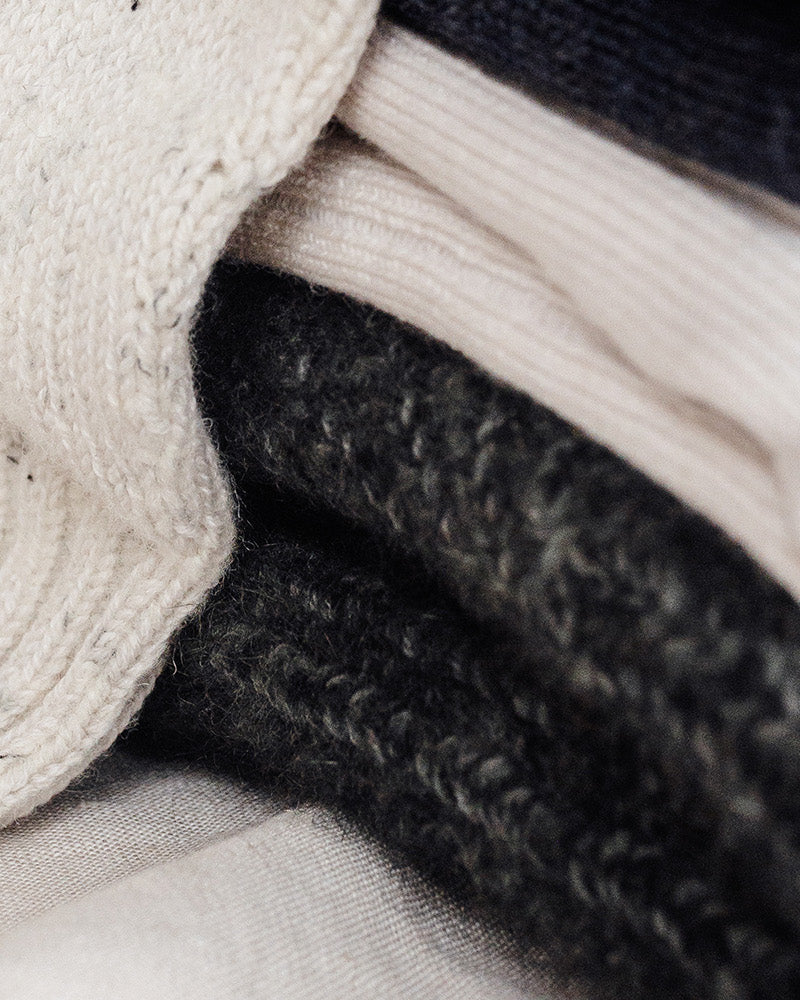The Packaging Problem
It’s no secret that plastic isn't planet friendly. It pollutes our earth and oceans and takes hundreds of years to decompose. So why would a so-called sustainable company like Untouched World still use plastic courier bags and packaging?
It’s not because we’re trying to cut corners, and we definitely don’t think plastic is fantastic. The truth is, we’ve found no worthy replacement. With so much mixed messaging around the issue and evidence buried beneath clever marketing, we did a deep dive into the world of packaging with the help of some experts. A life cycle assessment (LCA) by the Progressive Bag Alliance and Boustead Consulting & Associates compared plastic, compostable and paper bags across their entire life cycle, from the extraction of raw materials to its impacts after disposal. And what we found was shocking.
In the battle against climate change, many countries across the globe have found plastic bags the natural enemy in an attempt to reduce landfill, ocean pollution and our dependence on oil. While this is a well-intentioned effort, plastic bags have just been replaced by other single-use alternatives like paper and compostable bags. Instead of slowing down climate change, the ban may actually be speeding it up. Compared to paper and compostable bags, plastic bags scored the lowest across most areas in the LCA, including greenhouse gas emissions, toxic sulphur and nitrogen oxide emissions, municipal solid waste from landfill disposal, use of fossil fuels and feedstocks, electricity and water use. Plastic bags, including our courier bags and most other plastic packaging can be recycled through the Soft Plastics Recycling scheme in New Zealand. Compostable bags, on the other hand, cannot be recycled, and must be disposed of in specific ways that aren’t very accessible to most people currently in New Zealand.
Compostable bags, while made with good intentions, have several major problems. Compostables are generally made from crops we can eat, like corn and starch, which means we are taking away a valuable food source from people. These crops are also often grown with the help of toxic pesticides and fertilisers, which degrades the overall quality of the soil. Despite being made from organic matter, the end product is still plastic. To break it down, plastic is a man-made material, produced by a chemical reaction. The difference is, plant-based plastics can’t be recycled like traditional plastics. These ‘degradable’ bags must be broken down in a very specific environment, only achieved by an industrial compost, heated at 80-90°C. Here in New Zealand, we currently have inadequate infrastructure to support their correct disposal, with only three industrial composting facilities. Even so, they are only able to accept a mere 5% of ‘compostable’ waste as they offer no nutrients to the compost. The rest is fated to landfill, where it will break down slowly, emitting toxic methane gases.
Ok, so maybe not compostables then, but surely good old paper would do the trick, right? Think again. Far from this mystical image, paper was found to have the highest impact in the LCA. Transforming trees to paper is a chemical intensive process that releases harmful greenhouse gases into the air. Paper manufacturing uses 40% of the world’s wood resources, contributing significantly to deforestation. Approximately 100 litres of water are needed to make one kilogram of paper and 24 trees are needed to make one tonne of paper. A majority of what we think gets recycled gets contaminated and therefore must be taken to landfill. In New Zealand alone, we each use an average of 182.4 kilograms of paper per year. And it’s not just the trees that are suffering. The LCA found that the paper bag gave off 20 times more CO2 emissions than the plastic bag and uses twice as many raw materials, including feedstocks and fossil fuels than the plastic bag.


We know plastic isn’t pretty, and it’s an ongoing battle we face to find a truly sustainable alternative that also ticks all the boxes of protecting our garments. Unfortunately, there is no silver bullet and there will always be trade-offs that need to be weighed up. For now, while plastic bags are the best of a bad bunch, our focus is aimed towards circularity over sustainability, trying to keep plastics in the loop instead of in landfill. Sustainability is a journey, not a destination and we always strive for progress over perfection in the hope that what we can control outweighs what we can’t.
We always welcome any input or feedback, so if you’ve heard of any new products or developments that might help to solve this predicament feel free to email us.
Read the full LCA Report here.














